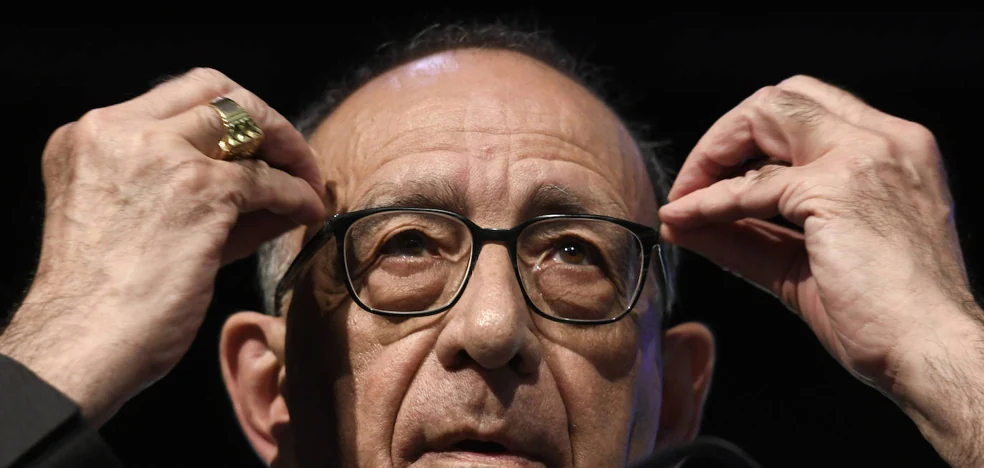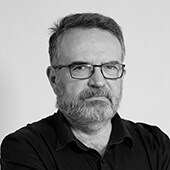The Spanish Church is committed to empowering women

The president of the Episcopal Conference, Cardinal Omella, during the synod. /
Optional celibacy, female priesthood and ordination of married men garner minority support
The Spanish Church claims a greater presence and power of women within the Catholic institution. This is one of the main proposals that emanates from the summary document of the Final Assembly of the Synod of the Episcopal Conference, which was held this Saturday in Madrid and which brought together some 600 people, most of them lay people. The text, a sum of proposals that will be sent to the Vatican with a view to holding the synod in October 2023, attacks "clericalism" -the pre-eminence of priests and priests over the laity- and ecclesial "authoritarianism", fruit of the understanding of authority as an exercise "of power and not as a service to the community".
It is not uncommon that the marginalization of women in the organization has been one of the issues that has garnered the most resonance in the synodal process. And it is not strange at all because 70% of the proposals have left women. «It is necessary to rethink the role of women in the Church, with a greater role and responsibility; simply, they are playing a fundamental role in the day-to-day life of the ecclesial community and they must be able to assume it equally in the places and spaces in which decisions are made”, says the synthesis.
The assembly, in which 58 bishops, 80 priests and 360 lay people participated, in addition to the nuncio of Spain to the Holy See, intended to contribute to updating the doctrine on the Church raised by the Second Vatican Council. This means entering into a sack in matters that until now were considered taboos, such as the ordination of married men and optional celibacy. Two proposals that will appear in the final conclusions, although they have not received much support. "These are issues raised only in some dioceses and, in them, by a small number of groups or individuals," says the document. As far as the female priesthood is concerned, "it has emerged to a lesser extent." The writers of the letter are committed to greater "accompaniment" of divorced and remarried Catholics and homosexuals.
The most audacious measures have been exposed by faithful of the dioceses of Barcelona, Zaragoza and San Sebastián. From these demarcations have come the most advanced suggestions regarding the democratization of the Church.
Disappointment
The progressive organizations of the faithful will be disappointed by a Pyrrhic victory, but it is already known that the biorhythms of a millennial, patriarchal and hierarchical organization are not for the impatient. However, the document does not completely reject the theses of the most open, since it speaks of giving an opportunity to ecclesial dialogue and advocates the "need to discern in greater depth" on such issues.
The clergy also endured the downpour when one of the authors of the letter complained about clerical indolence: «The lack of enthusiasm of a very relevant part of the priests of the different local communities and our lack of effectiveness as a community to the time to accompany them in the experience of their vocation».
The participants in the synodal assembly did not get tired of repeating that in the elaboration of ideas, which began in October last year, the Church has made an exercise of "listening and discernment." Not in vain, the Episcopal Conference emphasizes that almost 220,000 people have been involved in the process.
The laity want decisions to be taken in a shared way with the hierarchy, especially so that their voice is heard in the appointment of bishops and parish priests. The authors launch a broadside against the stagnation of the rites and proclaim that "the liturgy is lived in a cold, passive, ritualistic, monotonous, distant way."
forgiveness and reparation
The participants in the synod reveal their concern about the "low presence and participation of young people in the life and mission of the Church", and note the reverberations that the scandal of clerical pederasty has had in society, which shows " the need for forgiveness, accompaniment and reparation».
The participants in the meeting do not apply hot cloths to the disconnection between the Catholic institution and society. “There is a clear fracture between Church and society. It is seen as a reactionary and unproactive institution, far removed from today's world». This image of the Church arouses discouragement among the faithful. They know that their representatives do not communicate well, they use unintelligible language in their homilies, often tedious and long, and offer an outdated image that "difficulty the evangelizing and transforming presence of reality."
"We are particularly hurt by the lack of enthusiasm of a very relevant part"
The document advocates greater professionalization in government affairs and the convenience of extending transparency to other areas beyond economic data. "There is an urgent need for a greater presence in the general media, both in the traditional and in the new virtual spaces, together with a better use of their own media," say the participants in the synod.
In addition, the text defends reinforcing the qualified presence of the Church in the rural world, encouraging pastoral work with the elderly and paying attention to popular religiosity "as a channel of evangelization in a secularized world", in addition to increasing attention to prisoners, sick or immigrants.
On the way to the pontifical synod convened by Francis, 14,000 synodal groups have participated in Spain, in which there were mainly lay people, but also consecrated persons, religious, priests and bishops.
The meeting began with welcome greetings from the Archbishop of Madrid, Cardinal Carlos Osoro; the president of the Episcopal Conference and archbishop of Barcelona, Cardinal Juan José Omella; and the apostolic nuncio in Spain, Bernardito Auza.
During the assembly, held at the Pablo VI Foundation, the president of the Catholic hierarchy said that synodality is part of the "DNA" of the Church. In this sense, he compared the discernment process that has been undertaken with a GPS navigator that "sometimes says recalculating, that you were wrong."











